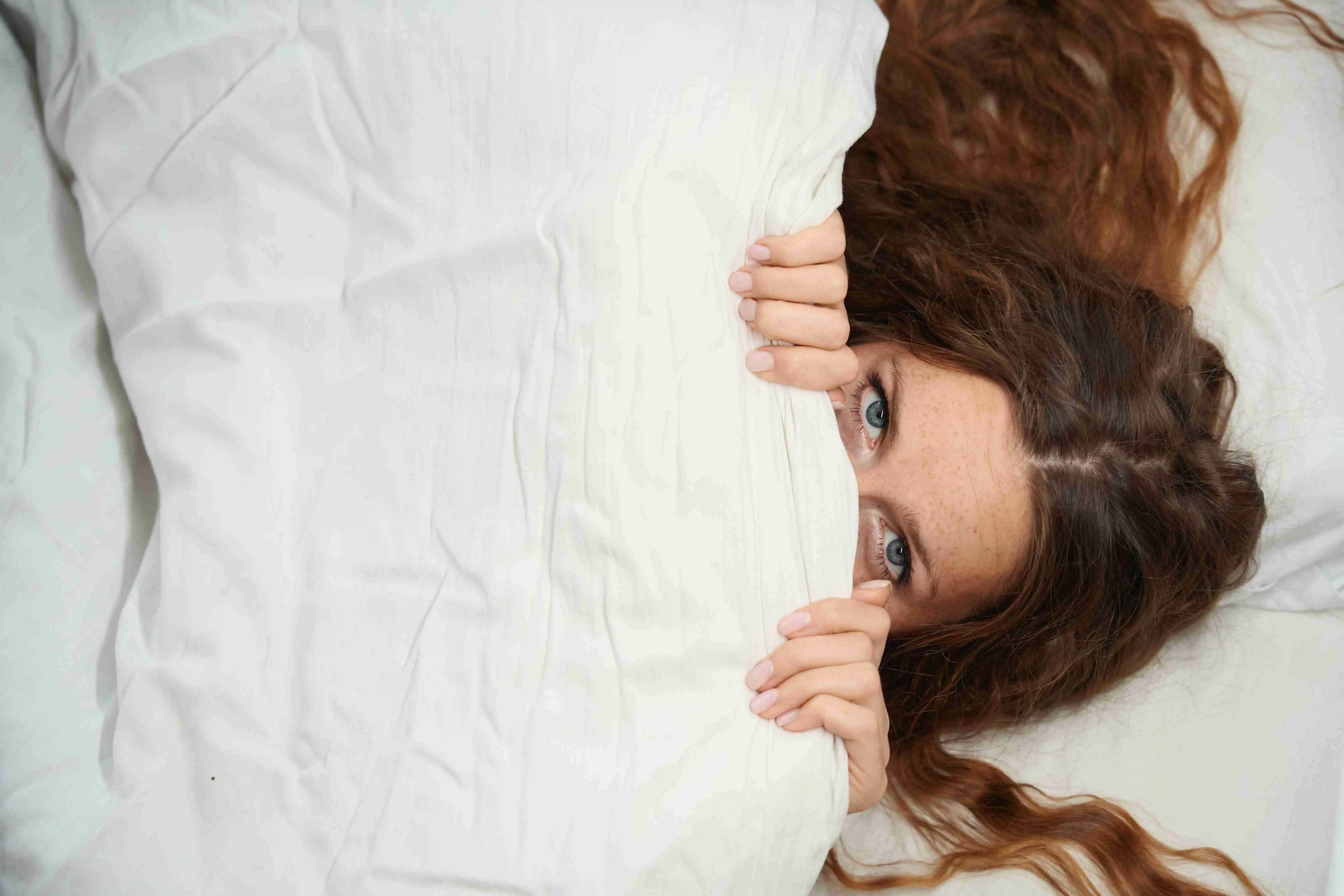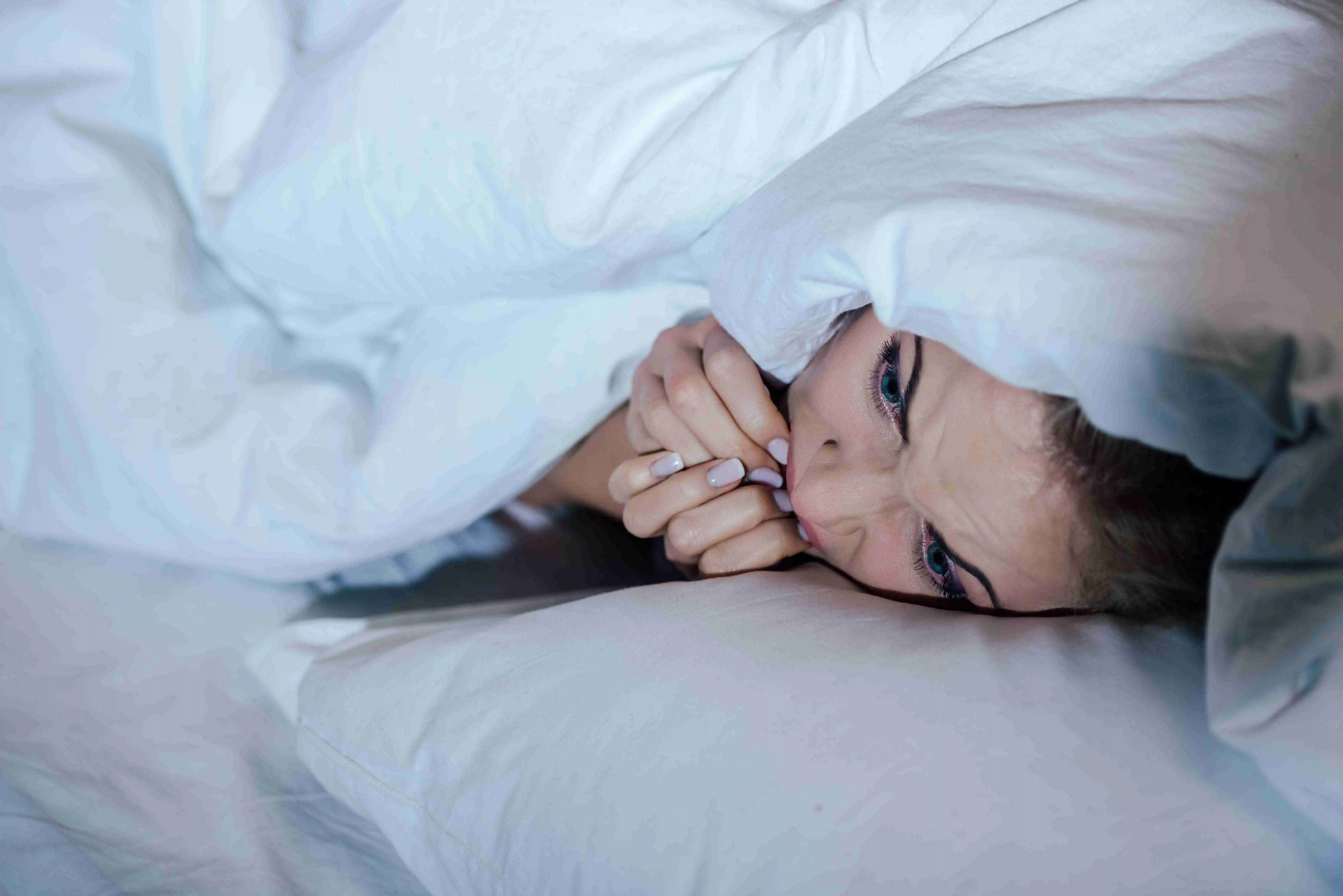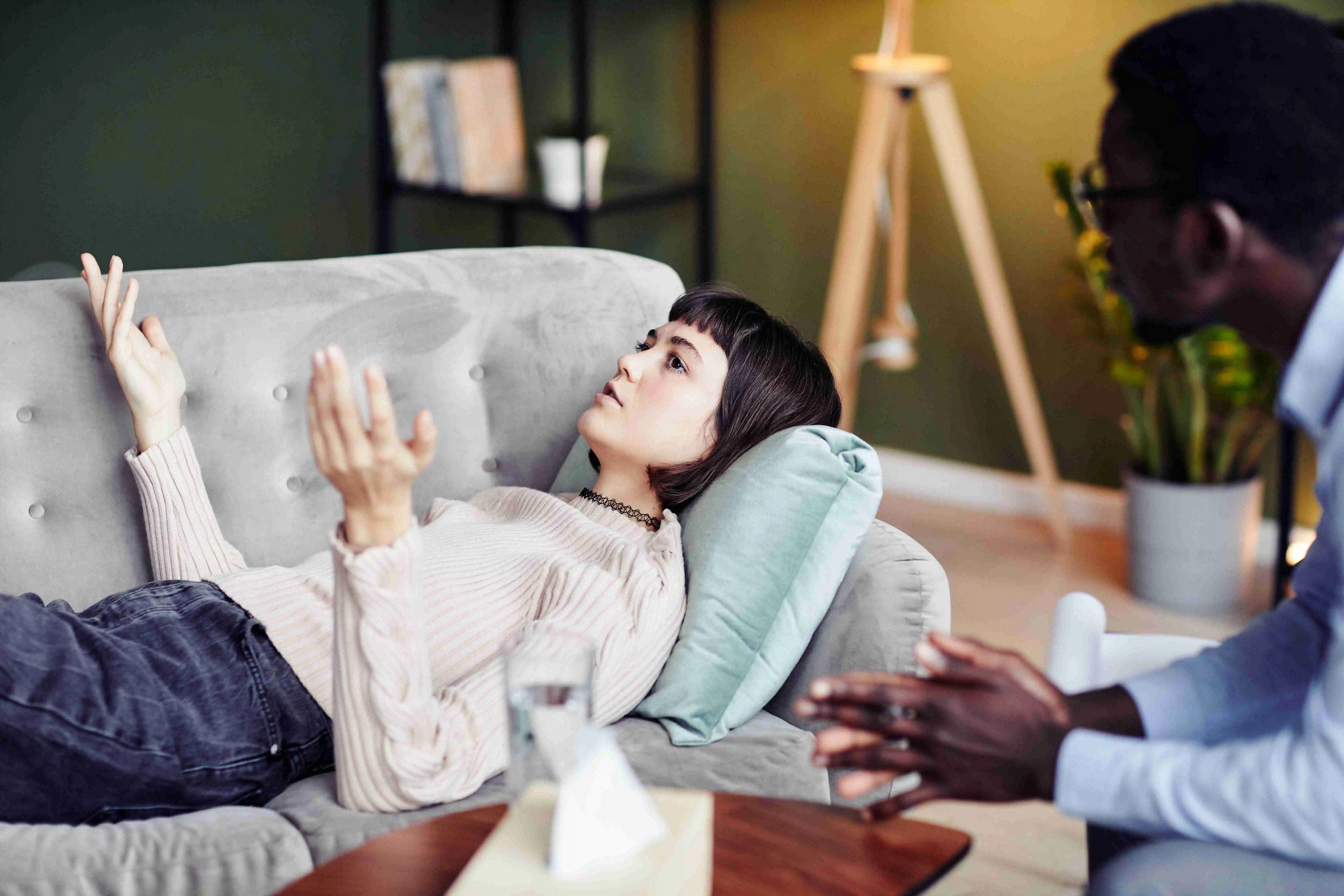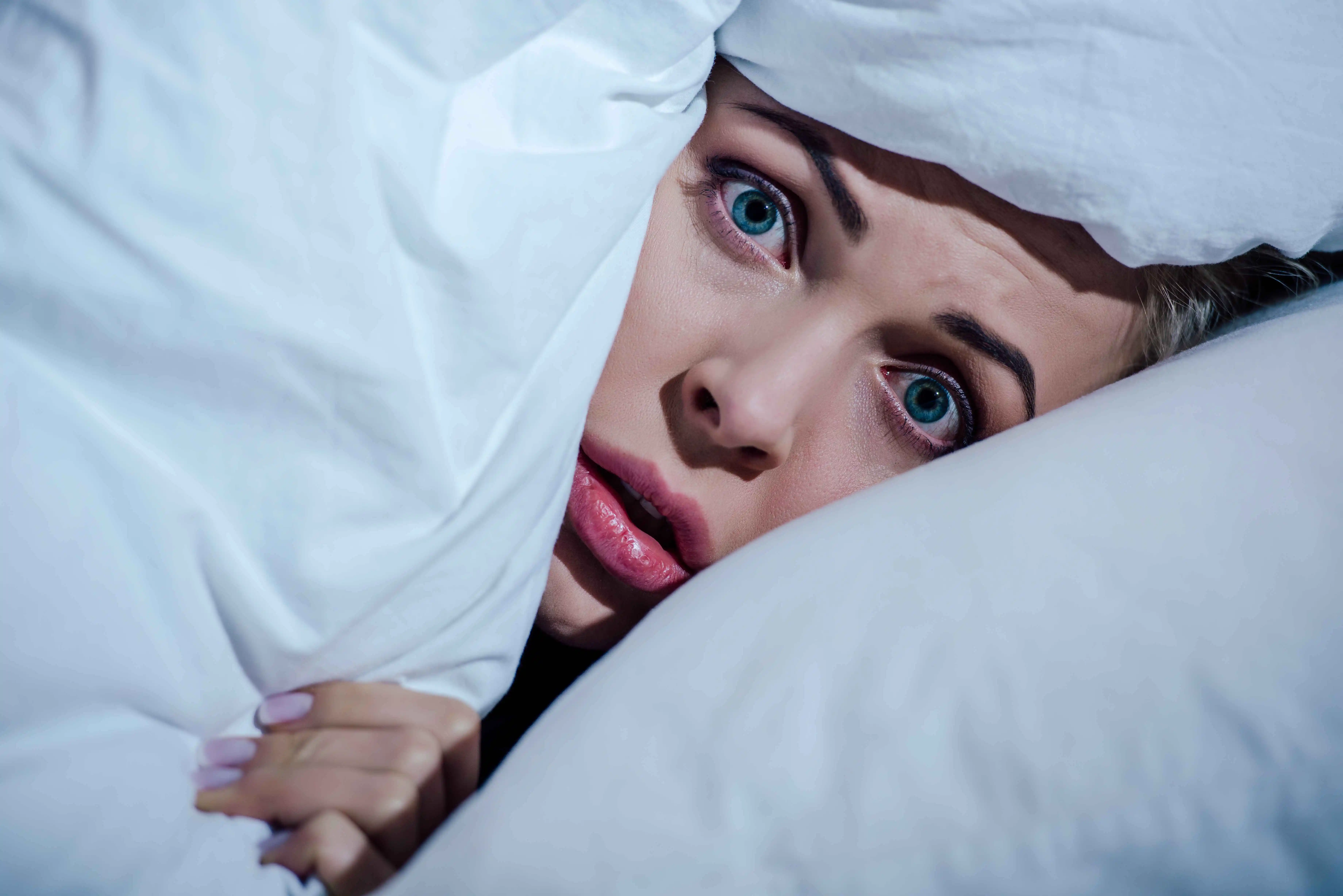Somniphobia, also known as the fear of going to sleep, is a relatively uncommon but significant condition that can greatly impact an individual's quality of life. It is characterized by an irrational and persistent fear of falling asleep or staying asleep.
While it may seem paradoxical to fear something as essential and natural as sleep, somniphobia can stem from traumatic experiences, anxiety disorders, or even the fear of experiencing nightmares or sleep disorders.
What is somniphobia?

Somniphobia, meaning the fear of sleeping at night, is also known as sleep phobia, and it's a specific phobia characterized by an intense fear of falling asleep or being too paranoid to sleep. Individuals with somniphobia often experience anxiety and distress at the mere thought of sleeping.
This fear can stem from various underlying causes, such as traumatic experiences during sleep, recurring nightmares, or a general fear of losing control while unconscious.
Importance of Addressing Sleep Phobias
Sleep phobias, such as somniphobia or fear of falling asleep, can have a significant impact on a person's quality of life and overall well-being. These phobias can lead to insomnia, anxiety, and other sleep-related disorders.
By addressing these fears, individuals can regain control over their sleep patterns and experience restful nights. Moreover, addressing sleep phobias can also help identify any underlying causes or traumas that may be contributing to these fears, allowing individuals to seek appropriate therapy or treatment. Ultimately, addressing sleep phobias is essential for promoting better mental and physical health.
Symptoms of Somniphobia
Physical Symptoms
- Rapid Heartbeat: Individuals who suffer from this phobia may experience an increased heart rate when the idea of falling asleep or being in a sleeping environment arises. This rapid heartbeat can be quite distressing, and it can further exacerbate the fear and anxiety associated with somniphobia.
- Sweating: When faced with the prospect of sleep, individuals with this phobia may experience excessive sweating. Sweating can be a physical manifestation of the fear and anxiety experienced when contemplating or trying to fall asleep. Feelings of discomfort and unease can accompany sweating, which exacerbates the fear of falling asleep and prevents it.
- Shortness of Breath: People with this phobia may feel like they can't breathe when thinking about sleep or bedtime. This feeling of breathlessness can heighten anxiety levels and contribute to a sense of panic and fear.
- Nausea or Stomach Discomfort: One common symptom is nausea or stomach discomfort. This can manifest as a feeling of unease or butterflies in the stomach, making it difficult for individuals to relax and fall asleep.
- Muscle Tension: The fear and anxiety associated with somniphobia can also lead to muscle tension. This can cause individuals to feel tense and restless, making it challenging to find comfort in bed.
- Headaches: The stress and anxiety surrounding sleep can trigger tension headaches, which can further exacerbate the fear of falling asleep. It is important to note that these symptoms may vary from person to person, and some individuals may experience additional or different symptoms.
- Sleep Disturbances: This can manifest as difficulty falling asleep, frequent waking up during the night, or experiencing nightmares and night sweats. These sleep disruptions can lead to feelings of fatigue and exhaustion, making it challenging for individuals to function optimally during the day.
Psychological Symptoms
- Intrusive Thoughts: These thoughts may revolve around the fear of not being able to wake up, fear of experiencing a sleep-related accident, or fear of losing control while asleep. These intrusive thoughts can be persistent and distressing, causing heightened anxiety and further reinforcing the fear of sleep.
- Panic attacks are sudden episodes of extreme fear that can come with physical symptoms like a racing heartbeat, shortness of breath, trembling, and sweating. The fear of falling asleep or going to bed can trigger these panic attacks, leading to a vicious cycle where the individual becomes even more fearful of sleep.
- Fear of Nightmares: An individual's fear of nightmares may disrupt their ability to relax and obtain restful sleep, further exacerbating their depressive symptoms. This vicious cycle can make it challenging for individuals with somniphobia to break free from their fears and find relief.
- Irritability and Mood Swings: Individuals with somniphobia often experience intense anxiety and fear when it comes to going to bed or falling asleep. This fear can lead to heightened levels of irritability and mood swings during the day. The constant worry about sleep can disrupt their daily routine and affect their ability to function normally.
- Social Anxiety: Individuals with this phobia may avoid social situations that involve staying overnight or sleeping in unfamiliar places, fearing that they will have nightmares and be embarrassed or judged by others.
- Depression: The constant fear and anxiety surrounding sleep can cause significant distress, leading to feelings of hopelessness and sadness.
Causes of Somniphobia

Traumatic Experiences
- Nightmares or Night Terrors: These terrifying dreams can create a sense of fear and anxiety around the idea of falling asleep, as individuals may worry that they will have another terrifying experience during the night.
- Sleep Paralysis: Sleep paralysis is a condition in which a person is temporarily unable to move or speak while falling asleep or waking up. This can be a frightening experience, as individuals may feel trapped and unable to escape from their immobile state.
- Traumatic Events: These traumatic events can lead to feelings of fear and anxiety that are associated with sleep, making it difficult for individuals to feel safe and comfortable enough to fall asleep.
Anxiety Disorders
- Generalized Anxiety Disorder (GAD): Individuals with GAD experience excessive worry and fear about various aspects of their lives, including sleep. This anxiety can make it difficult for them to relax and fall asleep, leading to a fear of sleep itself.
- Panic Disorder: People with panic disorder experience recurring panic attacks, which are sudden and intense episodes of fear and physical symptoms such as rapid heartbeat, shortness of breath, and dizziness. These panic attacks can occur during sleep or upon waking up, creating a fear of falling asleep and triggering an avoidance of bedtime.
Stress Disorders
- Insomnia: Insomnia, a common sleep disorder characterized by difficulty falling asleep or staying asleep, can also contribute to the development of somniphobia. Prolonged sleeplessness can cause frustration and anxiety, which can lead to a fear of bedtime and a vicious cycle of sleep deprivation.
- Sleep Apnea: People with sleep apnea often experience sudden awakenings due to gasping or choking, which can create a fear of falling back asleep and lead to anxiety about going to bed.
Mental Health Issues
- Post-Traumatic Stress Disorder (PTSD): Traumatic events can cause nightmares and flashbacks, making it difficult for individuals with PTSD to feel safe and relaxed during sleep. This sleep-related fear and anxiety can then manifest as somniphobia.
- Depression: Individuals who suffer from depression often experience disrupted sleep patterns and may associate sleep with negative emotions or thoughts. This can lead to a fear of falling asleep and exacerbate somniphobia symptoms.
For more information about how sleep can impact mental health, check out the article “Mental Health”.
Medical Conditions
Certain medical conditions, such as sleep disorders like insomnia or sleep apnea, can make falling asleep or staying asleep difficult. These difficulties can create a fear or phobia around sleep, as individuals may associate it with discomfort or distress.
Chronic pain conditions or illnesses that cause physical discomfort can also contribute to somniphobia by making sleep an unpleasant experience.
Substance Abuse
Substance abuse can also contribute to somniphobia's development. Substance abuse, particularly drugs or alcohol, can disrupt normal sleep patterns and lead to insomnia or nightmares. These disruptions can create a fear of falling asleep, as individuals may associate sleep with negative experiences or feelings of vulnerability.
Moreover, substance abuse can cause heightened anxiety or paranoia, which can further contribute to the fear of sleep.
Treatments of Somniphobia
Cognitive-Behavioral Therapy (CBT)
- Cognitive Restructuring: It involves identifying and challenging negative thoughts and beliefs about sleep. Through this process, individuals learn to replace these irrational thoughts with more realistic and positive ones. By changing their mindset, individuals can reduce the anxiety and fear associated with sleep.
- Exposure Therapy: This involves gradually exposing individuals to sleep-related stimuli that evoke fear or anxiety. The therapist guides the individual through a series of relaxation techniques during these exposures to help them learn to cope with their fears.
- Relaxation Techniques: Deep breathing exercises and progressive muscle relaxation can also help treat somniphobia. These techniques promote relaxation and reduce the physical symptoms of anxiety, making it easier for individuals to fall asleep and stay asleep.
Medication
- Anti-Anxiety Medications: This can help to alleviate the anxiety and fear associated with sleep. These medications work by targeting the neurotransmitters in the brain that are responsible for feelings of anxiety, helping individuals to feel more calm and relaxed before bedtime.
- Antidepressants: Antidepressants work by altering the levels of certain chemicals in the brain, such as serotonin and norepinephrine, which can help to improve mood and reduce anxiety. In some cases, individuals with somniphobia may also have underlying depression or anxiety disorders that contribute to their fear of sleep.
- Sleep Aids: Sleep aids, such as over-the-counter medications or prescription drugs, can help individuals with somniphobia relax and fall asleep. These medications work by suppressing the central nervous system, promoting drowsiness, and reducing anxiety.
Hypnotherapy
Hypnotherapy involves using relaxation techniques and guided imagery to help individuals address their fears and anxieties surrounding sleep.
During a hypnotherapy session, a trained therapist will guide the individual into a state of deep relaxation and suggest positive affirmations related to sleep. This can help individuals reframe their thoughts and beliefs about sleep, ultimately reducing their fear and anxiety.
Acupuncture
Acupuncture is another alternative treatment that can be effective for somniphobia. This ancient Chinese practice involves inserting thin needles into specific points on the body to stimulate energy flow and promote healing.
Acupuncture can calm the nervous system, assisting people with somniphobia in relaxing and achieving a more balanced state of mind.
Additionally, acupuncture can help address any underlying imbalances in the body that may be contributing to sleep disturbances.
Managing Somniphobia

Psychotherapy
Psychotherapy involves working with a trained therapist to address the underlying causes of somniphobia. Through techniques such as cognitive-behavioral therapy (CBT), individuals can challenge and change the negative thoughts and beliefs associated with sleep.
This therapy also helps in developing relaxation techniques and coping mechanisms to reduce anxiety and promote better sleep.
Lifestyle Modifications
Lifestyle modifications can also play a crucial role in managing somniphobia. Creating a consistent sleep routine is essential, including going to bed and waking up at the same time every day. This helps regulate the body's internal clock and promotes better sleep.
Avoiding stimulating activities before bedtime, such as using electronic devices or consuming caffeine, can also aid in relaxing the mind and preparing for sleep. Creating a comfortable sleep environment with a dark and quiet room can help alleviate anxiety about sleeping.
Building a healthy bedtime routine is crucial to combating somniphobia. To learn more about how you can create the ideal bedtime routine, check out the article “Bedtime Routine Guide”.
FAQs
How does somniphobia affect sleeping?
People with somniphobia often experience intense fear and worry about going to sleep, which can lead to insomnia and sleep deprivation. This fear may arise from a variety of sources, such as past traumatic experiences, nightmares, or a general fear of losing control during sleep. Consequently, individuals with somniphobia may develop a negative association with sleep, leading to heightened anxiety and difficulty relaxing before bedtime.
Can somniphobia be treated?
There are treatment options available for those suffering from this phobia. One common approach is cognitive-behavioral therapy (CBT), which helps individuals identify and challenge their negative thoughts and beliefs about sleep. By gradually exposing themselves to sleep-related stimuli, patients can learn to confront and overcome their fears. In some cases, doctors may also prescribe medication to alleviate anxiety and promote relaxation.
When should I see a doctor about somniphobia?
While occasional fear or anxiety about sleep is common, if it becomes persistent and starts interfering with daily functioning, it may be time to seek medical attention. Consult a doctor if you find yourself constantly worrying about going to bed, experiencing intense panic or anxiety when thinking about sleep, or if your fear of sleep is causing significant distress or impairing your ability to function normally.
How common is somniphobia?
It affects a small percentage of the population, about 3–8% of people may experience some degree of fear or anxiety related to sleep. However, it is important to note that somniphobia can vary in severity, ranging from mild discomfort to debilitating fear.
Are there long-term effects of somniphobia?
This condition can lead to chronic insomnia and sleep deprivation, which can have detrimental effects on physical and mental health. A lack of quality sleep can result in daytime fatigue, impaired cognitive function, and decreased productivity. Over time, it can also weaken the immune system, making individuals more susceptible to illnesses.
What is the difference between somniphobia and sleep anxiety?
Individuals with somniphobia may experience intense anxiety, panic attacks, or insomnia when faced with the prospect of sleep. On the other hand, sleep anxiety refers to a general feeling of unease or worry about sleep itself. While somniphobia specifically focuses on the fear of falling asleep, sleep anxiety encompasses a broader range of concerns related to sleep quality and duration.
Conclusion
Somniphobia is a complex and distressing condition that can have a profound impact on an individual's well-being. It is important to recognize the signs and symptoms of somniphobia and seek professional help if necessary.
With proper diagnosis and treatment, individuals with somniphobia can overcome their fear and regain a healthy relationship with sleep. Sleep is a vital aspect of our lives, and it is crucial to address any fears or anxieties that may hinder its restorative benefits.
Kelsey Butler, MS, RDN
Kelsey Butler is a Registered Dietitian Nutritionist with a Master's in Nutrition Sciences. She is an expert in nutrition research, coaching, and content development. Kelsey takes a mindful approach toward health and values building relationships with all foods. She understands the need to set personalized goals because not one size fits all, from dietary preferences to lifestyle habits.


